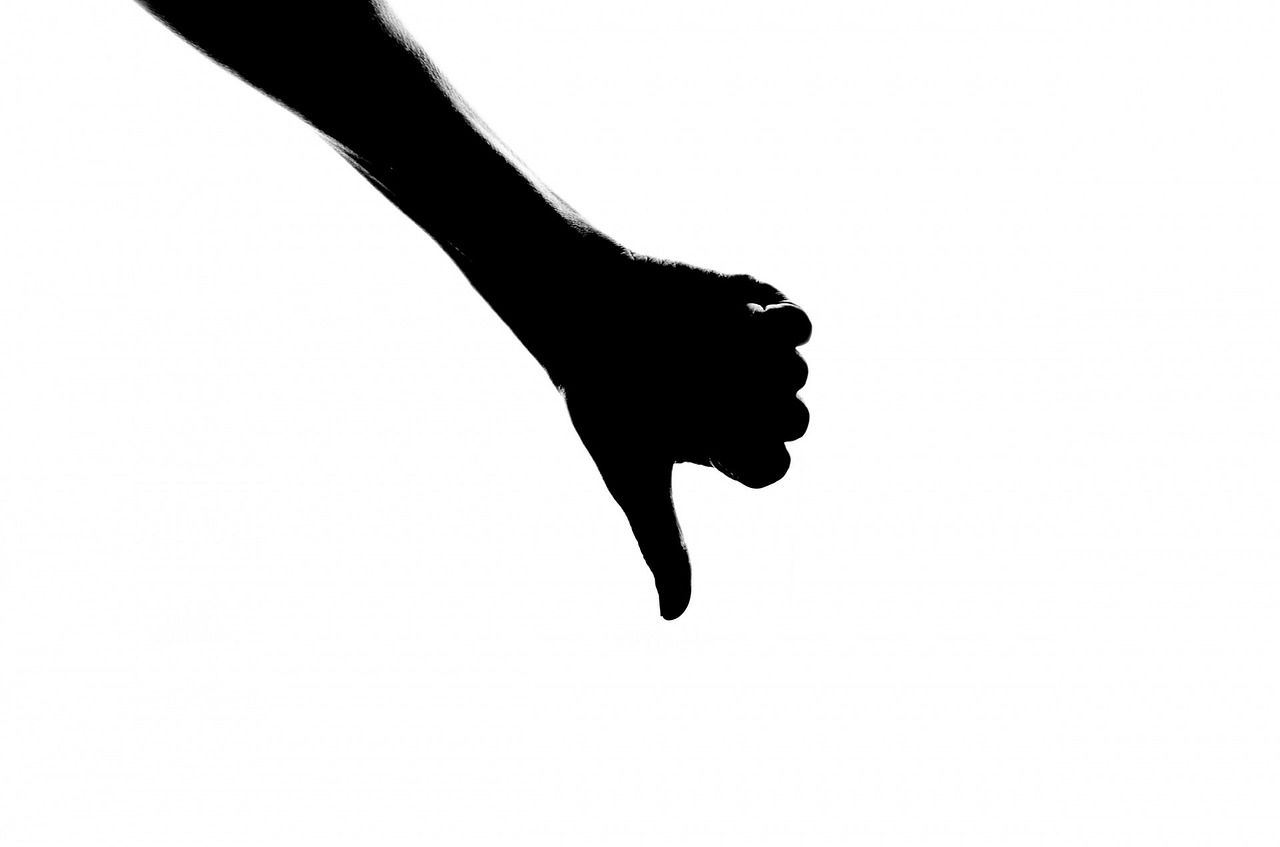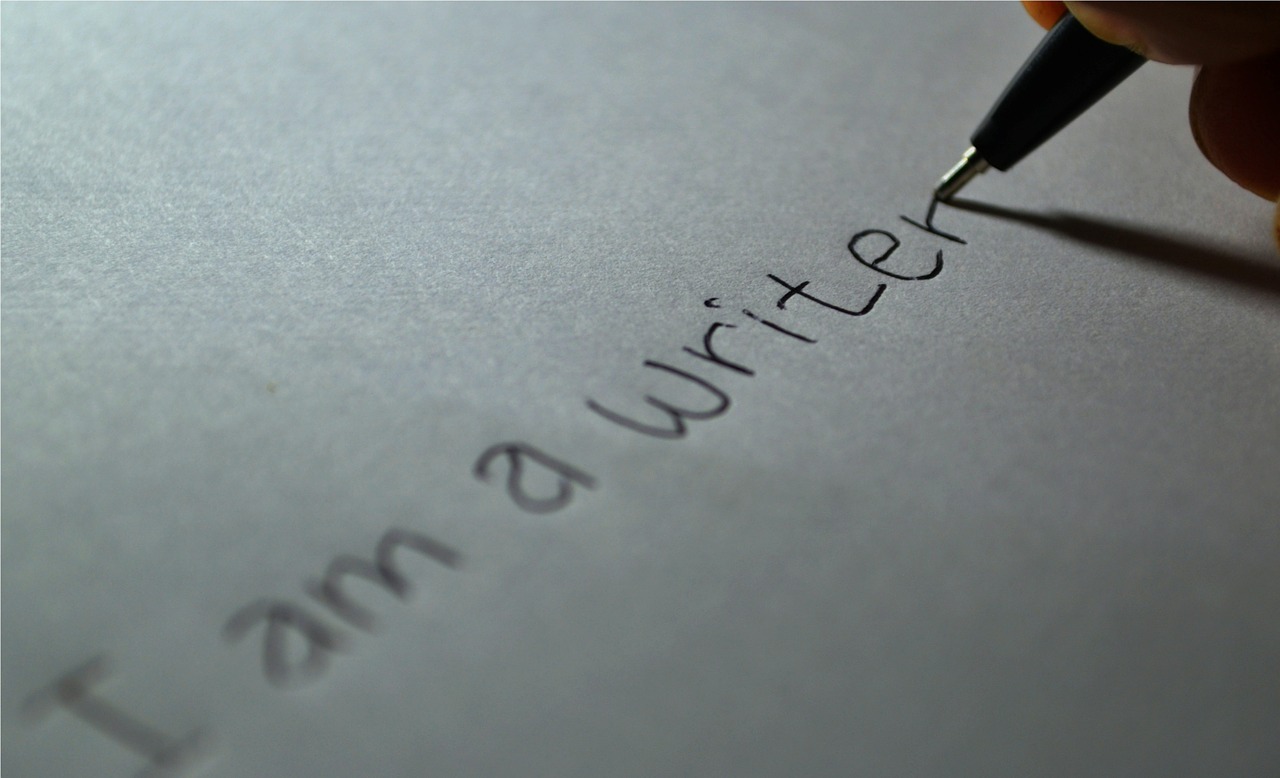 You spend years working toward the publication of your book.
You spend years working toward the publication of your book.
Take writing classes. Attend workshops. Mingle at literary conferences. Develop your craft. Work with a writing coach. Write the manuscript. Hire an editor. Revise and rewrite. Build a website and blog every week. Grow an audience platform. Write reviews of books by authors you admire. Polish a proposal. Query agents. Receive rejection after rejection.
And you wonder if it will stop hurting so much if you simply give up now. When you get a “no” it hurts. You doubt yourself. You question whether the book you’ve written is any good. You wonder if you’ve been suffering from grandiose delusions about your own talents.
 When you reread the latest rejection letter a few days later, you might see a glimmer of hope. The agent complimented your writing but didn’t think it was right for them or didn’t think they were the right person to sell the project. So maybe, you think, it’s not you or your writing but simply this wasn’t the right agent. Or maybe the agent is right about an insufficient audience platform, the lack of character development, or the first 10 pages didn’t have a strong enough hook.
When you reread the latest rejection letter a few days later, you might see a glimmer of hope. The agent complimented your writing but didn’t think it was right for them or didn’t think they were the right person to sell the project. So maybe, you think, it’s not you or your writing but simply this wasn’t the right agent. Or maybe the agent is right about an insufficient audience platform, the lack of character development, or the first 10 pages didn’t have a strong enough hook.
And you go back to work. You struggle to improve the manuscript. Tighten the narrative arc. Deepen the characters. Figure out a way to repackage the project. Submit essays, poems, or short stories for publication in literary journals or popular magazines. Give readings of your work-in-progress. Expand your social network. Apply for fellowships. Submit to writing contests. Then you query again and get more rejections.
 But it only takes one to say yes. You find an agent! You sign with the one who falls in love with your book. And then they tell you to do more work. Cut 20K words. Rework the subplot. Improve the pacing or craft a better ending. It bums you out to discover finding an agent is another beginning instead of the end of your herculean efforts. Revise again. Rewrite your proposal. Punch and polish the manuscript. Again and again. Finally your agent sends out query letters and you get more rejections.
But it only takes one to say yes. You find an agent! You sign with the one who falls in love with your book. And then they tell you to do more work. Cut 20K words. Rework the subplot. Improve the pacing or craft a better ending. It bums you out to discover finding an agent is another beginning instead of the end of your herculean efforts. Revise again. Rewrite your proposal. Punch and polish the manuscript. Again and again. Finally your agent sends out query letters and you get more rejections.
It hurts more. You’re tired of revising and rewriting and repackaging. You question your story and your ability to tell it. You lose sight of the fact an agent believes in your project enough to take a risk on selling it. Agents don’t get paid a commission unless they sell the property. You get angry with yourself for clinging to the fantasy you’ll get published. And then you get depressed…
 …Until your agent lands you a publishing contract. Sign on the dotted line. You can hardly believe it is happening. You’re going to be a published author. But then there are more editorial revisions to be made. Before you turn in the final version of your manuscript, you have to pull together a marketing and publicity plan, seek endorsements from famous people to get blurbs for the cover, and plan author events for the publication date. You beseech friends and family to buy your book when it comes out, and then to post their reviews on Amazon and GoodReads. You line up speaking engagements and radio interviews. Hire a publicist. Send out press releases and arrange interviews with news reporters and book reviewers.
…Until your agent lands you a publishing contract. Sign on the dotted line. You can hardly believe it is happening. You’re going to be a published author. But then there are more editorial revisions to be made. Before you turn in the final version of your manuscript, you have to pull together a marketing and publicity plan, seek endorsements from famous people to get blurbs for the cover, and plan author events for the publication date. You beseech friends and family to buy your book when it comes out, and then to post their reviews on Amazon and GoodReads. You line up speaking engagements and radio interviews. Hire a publicist. Send out press releases and arrange interviews with news reporters and book reviewers.
And the entire time you’re waiting for the release of the publication you doubt yourself, your book, and whether your readers will like what you’ve written. Imposter syndrome sets in. You feel like a fraud. You can’t believe your book will really be published or that readers will like it. You work harder to compensate for these feelings and are completely overwhelmed by the  endless tasks involved with the business of becoming an author.
endless tasks involved with the business of becoming an author.
Your production editor quits for a better job elsewhere. The galley proofs arrive and you gasp when you see the errors introduced into your manuscript. The cover design is horrible and your feedback isn’t welcomed. The publisher pushes back the release date even though you have met every deadline ahead of schedule. Your contact in the publisher’s marketing department doesn’t reply to your emails or phone messages. Anxiety rises. A sense of doom descends.
The book is launched. Pub day arrives!
It is SO incredibly anticlimactic. You still have to let the dog out first thing in the morning. And pick up the poop. The kids still expect you to arrive on time to pick them up from softball practice. Your husband hasn’t even read the damn book yet. You have to throw your own party. And you wonder if you’ve alienated all your Facebook friends with your “Me, Me, Me” posts. While everyone expects you to be elated, you start singing the blues.
 The first 30 days after release are a bit surreal. You expect something to be different. To feel affirmed by the universe: you really are an author now. Legitimated by the rite of passage. Certified, if not sanctified, by the rights and privileges of publication. But you’re exactly the same as the day before publication. Nothing happens. And when you sit down to write, it isn’t any easier than the day you started the first draft many years ago.
The first 30 days after release are a bit surreal. You expect something to be different. To feel affirmed by the universe: you really are an author now. Legitimated by the rite of passage. Certified, if not sanctified, by the rights and privileges of publication. But you’re exactly the same as the day before publication. Nothing happens. And when you sit down to write, it isn’t any easier than the day you started the first draft many years ago.
You wait for the reviews. When you read them, you suspect the reviewers wrote puff pieces based on the marketing materials and interjected their own prejudices and biases without actually reading the book. You’re devastated when a review is more critical than complimentary. Those which offer literary acclaim lack any significance when you’re in the check-out aisle of the grocery store. There’s no discount on printer cartridges at Office Max when Kirkus gives you a starred review.
 You watch the Amazon sales rankings do nothing, go nowhere, and then drop precipitously day after day. You show up for readings and book signings, slap a smile on your face, and thank everyone including your third-grade teacher. Go home and cry because no one acknowledged how hard you’ve worked to make this happen. Post-partum-publication depression sets in.
You watch the Amazon sales rankings do nothing, go nowhere, and then drop precipitously day after day. You show up for readings and book signings, slap a smile on your face, and thank everyone including your third-grade teacher. Go home and cry because no one acknowledged how hard you’ve worked to make this happen. Post-partum-publication depression sets in.
You avoid reaching out to friends and family. You know you should be happy and enjoy this major accomplishment. You are certain no one else could possibly understand why you would be depressed. Your best friend couldn’t be bothered to post a review of your book. Your parents haven’t bought the book. You used your 10 complimentary copies from the publisher for a GoodReads giveaway but none of the recipients has written a review. When you visit your local indie bookstore, you notice there isn’t even a copy of your book on the local authors bookshelf. You go home and climb under the covers and cry yourself to sleep.
 Two months after the book’s release, Barnes & Noble sends back any unsold copies for full credit. Your sales figures plummet. Everyone starts to ask when your next book is coming out and you’re beating yourself up because there hasn’t been time to write while you’ve been promoting this book. Three months after the publication date you can forget about getting any book reviews or news coverage. After six months, the invitations for speaking engagements dry up. Book clubs may invite you to speak—free of charge, of course—and take offense when you request members purchase a copy of the book. They’d planned to borrow copies from the library or buy used copies on Amazon. A year after the release of the book, it’s as though you were never published. Depressing.
Two months after the book’s release, Barnes & Noble sends back any unsold copies for full credit. Your sales figures plummet. Everyone starts to ask when your next book is coming out and you’re beating yourself up because there hasn’t been time to write while you’ve been promoting this book. Three months after the publication date you can forget about getting any book reviews or news coverage. After six months, the invitations for speaking engagements dry up. Book clubs may invite you to speak—free of charge, of course—and take offense when you request members purchase a copy of the book. They’d planned to borrow copies from the library or buy used copies on Amazon. A year after the release of the book, it’s as though you were never published. Depressing.
Then the publisher sends the royalty statement. They’ve deducted the cost of indexing. The returns for full credit from bookstores which didn’t sell the copies they ordered. It may take years for you to earn out your advance or your royalty check won’t even pay the electric bill for one month. Before you know it, they’ve remaindered the rest of your books they have in inventory. The final humiliation is when you find libraries selling off copies pennies on the dollar because they don’t have room to keep more than one copy on their shelves.
 Writers have good reasons to be depressed about the real state of affairs in the business of being an author in this publishing environment. It’s a normal and healthy reaction to the difficulties imposed on writers by the publishing world. It’s not a sign of weakness or a character flaw when writers get the blues. Frustrated, discouraged, irritable, angry—these are righteous emotions. Feelings of sadness, worthlessness, even guilt are normal. Yes, guilt. Because an author gets published and so many other aspiring writers do not, they feel guilty and then feel worse because their success is so thoroughly unsatisfying.
Writers have good reasons to be depressed about the real state of affairs in the business of being an author in this publishing environment. It’s a normal and healthy reaction to the difficulties imposed on writers by the publishing world. It’s not a sign of weakness or a character flaw when writers get the blues. Frustrated, discouraged, irritable, angry—these are righteous emotions. Feelings of sadness, worthlessness, even guilt are normal. Yes, guilt. Because an author gets published and so many other aspiring writers do not, they feel guilty and then feel worse because their success is so thoroughly unsatisfying.
There are days when I wonder if anyone would pursue publishing if they knew what “success” felt like. Writing IS hard work. It has its own rewards independent of publishing. But when a writer pursues publication, the path is painful, tiresome, humiliating, and depressing in so many ways. There has to be a reason beyond ego, beyond the illusion of fame and fortune. That reason is always the same. The writer has a story worth sharing and readers need to know it. They believe readers will benefit, even if  at their expense, from knowing this story. It’s about serving readers. It’s not about the author.
at their expense, from knowing this story. It’s about serving readers. It’s not about the author.
Depressing? Yes. The truth often is. But writers need to know their feelings are based on depressing circumstances and their reactions to this reality are normal and healthy. I hope it helps to know what to expect and that you are not alone.

Well, that pretty much sums it up, doesn’t it!
Thank you Jill, for telling it like it is. People see writers and writing as so glamorous, but it’s a solitary, sometimes very lonely profession. And yes, your summary statement is absolutely true for me: “The writer has a story worth sharing and readers need to know it. They believe readers will benefit, even if at their expense, from knowing this story. It’s about serving readers.” The only thing that satisfies me as much as sharing my story is the occasional input I get from readers. For me it makes everything worthwhile.
And here’s the up side. While I write for others I also write for myself. Because it’s therapeutic; it helps me see and understand myself better. I write because it brings great joy. Because during those hours of choosing words to express myself and create something new, I’m living in eternity. Time and space disappear and have no meaning, no pull on me. I write because it satisfies my soul. Feels like my destiny, like what I was born for. Like a privilege. I write because it is my passion, and because, combined with my ongoing inner psychological work which is the theme of my writing, it’s the only thing I know how to do. So while in the down moments I have occasionally asked myself, “Why do I put myself through this?”, in the ‘up’ moments I know the answer. Because I must.
Thanks Jeanie for sharing the reasons you write. Writing has its own rewards. And I loved your answer to why you put yourself through the slog of publication. “Because I must.”
Thank you Jeanie. You said it beautifully.
Thank you for a searingly honest account. Most people who don’t know an author or the business believe that it’s a very different life to the one it is, believing it to be glamorous, full of excitement and that it pays well.
I’m glad now that my agent failed me abysmally; taking care of my own concerns and being my own publisher might be a lot of responsibility, but it means a number of good things. Not having to put up with a cover I hate or editorial changes I don’t believe in are only two.
Thanks Vivienne for your comment. While it can be depressing to be an author, it can be even more depressing if you’re self-published. Getting your books into bookstores and libraries is difficult if not impossible without distribution. And I almost never recommend an author self-publish for a variety of reasons, not the least of which is the job of author is full time and when you have to also do your own editing, order-fulfillment, warehousing, marketing, advertising, sales, bookkeeping, and taxes it can be too much. The other reason is you simply earn too little. According to the Author’s Guild 2015 income survey, the median income for self-published authors is $0-$5,000 a year. Best of luck with your books and self-publishing venture.
Thank you for writing this Jill!
I LOVED this piece! I was initially roped in by its accuracy, then by its comedy, which is the epitome of “author humor.” Boy, did you speak for so many of us. I’ve seen a few handle this subject before, but not anywhere near as spot-on and engaging as you have here. Thank you, Jill Swenson. I’ll be sharing this well-done post!
Thanks, Claire, for reading, and sharing. I think many writers feel this way but it’s our dirty little secret. I never could keep secrets!
I’m depressed and exhausted just from reading this. Don’t know if I have the stamina for the whole darn process of publishing. But I’ve been writing and rewriting, revising my book proposal, meeting new people involved in my area of interest, and spending hours a day on social media networking. And I’ve come to really enjoy these activities. They’ve become important stabilizers in my days. So I guess I’m not giving up yet. Sounds like there may be some Prozac in my future.
Ouch. I get it. I’ve experienced set-backs and disappointments. I’ve felt I was wasting time and money on something out of reach. I’ve needed pep talks and helping hands and hearts at roadblocks. I’ve felt and still feel discouraged when I’m not on track–and then I wonder why I don’t give it up.
Here’s why I Keep going. For me, there are big rewards:
A self-confidence that comes from articulating my hardest experiences and finding meaning that helps me live a better life every day.
An ability to stand in front of any group, relate to the people there, and express my views about life and death without falling apart. My first experiences with reading or speaking about loss in public were trembling and tear-filled affairs, but you encouraged me to keep going until my dizzy 5 minute readings of a work in progress became a TEDx talk and a book a few years later.)
A grounded power that came from actualizing an intuition and turning my hard experience into a book that would be helpful for others.
An ability to take rejection (and computer chaos) in stride and keep moving forward.
New contacts and friends from all over the globe who matter to me and enrich my life (some of them making comments here).
A new maturity and inner clarity from digging through the hardest places and unearthing gold.
I have no regrets.
Wow! What a wonderful list of rewards, Elaine. What a testimonial for walking through the rings of fire. You may have inspired me to write a followup to this blog on the upside of publication. You have described the unanticipated rewards most writers don’t think about when they consider publication. Thanks for sharing these insights here.
Elaine, your list just inspired me today. Thanks for posting it!
Thank you Jill.
I am printing out multiple copies of this honest description of a writer’s life to hand out to future people that casually tell me , ” Oh, I think I will write a book.”
I tip-toed into the publication world with my eyes clouded by grief. My soul begged to heal. Heavy thoughts pounded to exit my head. They landed on paper.
My bank account did not see much of an uptick. But the hole in my heart mended.
It was worth it.
Mending the hole in your heart is a wonderful reward for all your hard work, Kim. You had a powerful story to share with others and I’m sure readers benefit from knowing they aren’t alone in their experiences with grief. The rewards of publishing are sweetest when readers let you know your book make a difference.
Wow, thanks for this post, Jill. As my book approaches publication, it’s becoming more and more clear to me that once I make my own expenditure for marketing the book, I probably won’t make much money. I’m glad I clarified my own goals before I started the book project. I wrote my book not to make money, but because I found a story that deserved to be read; a story that deserves historical recognition. That is my goal and I know I’ll read it.
A very interesting read and good to know realities.
The question that I have though is how does this change for those who are pursuing a self-publishing/indie author route? I can see some obvious corollaries and universal truths, but when you eschew a traditional publishing route with agents, publishers and book tours, how much of this still holds true?
Yes, I still fall into that ‘going to be a published author’ category and am still have not experienced some of these things.
Hi M. D. Boncher,
Thanks for reading the bad news before you blame yourself for the blues. You asked if the blues hold true for self-published authors and I can almost guarantee those blues for those who pursue the self-publishing route. It is nearly impossible to get your book reviewed or carried in a bookstore or in a library. Then when the book doesn’t sell you have no one to blame except yourself and that can mean anger turned inward which can give you the deep blues. Regrets for investing so much time and energy into a book that doesn’t get sold or read may be a common side effect. And self-published authors aren’t honest with each other or their readers about how hard you have to work to sell a book and how little you get paid and because there is no sharing, the isolation makes self-published authors hide this fact as a stigma. Self-publishing as a form of vanity press. To be stigmatized as an author is also depressing to someone who worked honestly and conscientiously to make their book a success. If you are an aspiring writer, I don’t recommend you rush to get published. Good things take time. And that means writing the manuscript, putting together a winning proposal, pitch, and professional writing portfolio to make it possible for everything to happen all at once. When you get a positive response to a query letter you send out ten minutes after you send it out, you need to have your writing submission and proposal ready to send, and within hours you may have an agent offering representation and in a couple weeks to a month your agent lands you a contract offer. If they like what they read, it doesn’t take long at all to decide whether to invest or not. Decisions happen fast. Writing is a craft and it takes time to be an artisan.
I loved this post. In fact it gave me a great appreciation for all authors. Reminded me of a quote I hung in my office – It’s supposed to be hard. If it were easy, everyone would do it. It’s an elite club that I hope to join.
Thanks Jill, as always your incite is invaluable
Nick
Being an author is a labor of love!